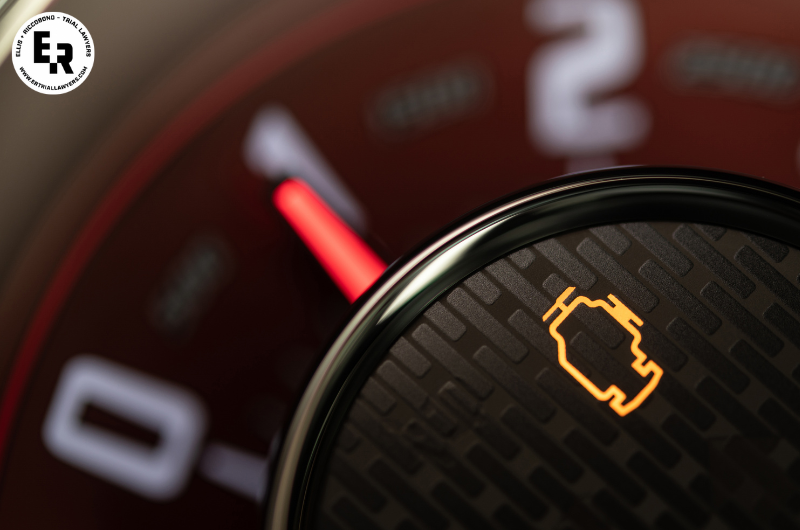
What Constitutes a Car Defect?
People rely on their vehicle to travel safely every single day. However, automobile manufacturers often sell vehicles that have defects that can lead to injuries or death. In instances where no one is injured by an automobile defect or the injuries are not serious, consumers are protected by a “lemon law.” Under this law, if a vehicle has a “substantial” defect that cannot be fixed after several attempts, you may be able to get your money back or get another vehicle. However, in instances where some is seriously injured or even killed, the only remedy is an automobile defect case.
Unfortunately, there is a long history of auto safety defects where many lives have been lost or destroyed from either dangerous designs or manufacturing errors. Approximately, 13% of all automotive accidents are the result of mechanical failures.
An automotive defect can be undetected during the manufacturing process. Some vehicles have inherent faults that may not be uncovered until a collision.
What Are the Most Common Car Defects?
Below are some common automobile defects:
Airbag failure: Airbags can help to minimize injuries and reduce fatalities. We all expect our airbags to protect us in a collision, but if the airbags fail to deploy in a collision, the injuries may be severe.
Seatbelt failure: Seatbelt failures may occur if the latch or retractor fail. When this happens the seatbelt does not prevent the occupant from striking an object in front of them, whether that is the steering wheel, dashboard, or seat in front of him or her. Such failure can also lead to the occupant’s ejection from the vehicle.
Seat-back failure: Some automobile manufactures attempt to cut corners and make seats as cheaply as possible. However, this may cause a seat to collapse, injuring the person sitting in the seat or falling back and on top of other occupants in an accident. This can be extremely dangerous not only for the person in the seat that fails, but also for anyone sitting in the back seat.
Rollovers: A dangerous vehicle design can lead to a vehicle being prone to roll over. According to National Highway Traffic Safety Administration (NHTSA) statistics, SUVs were involved in 36% of the rollover-related deaths in the United States, more than any other type of vehicle.
Roof crush: In the event of a rollover accident, the roof of a vehicle should be strong enough to withstand a certain amount of force, protecting the occupants from further injury. When the roof of a vehicle is not enforced, it can lead to serious injuries or even death.
ADAS: Advanced driver assistance systems (ADAS) technologies are becoming more commonplace. These systems, such as forward collision warning (FCW) and automatic emergency braking (AEB), are intended to provide warnings and/or features that assist the driver with the driving task. By 2018 at least one ADAS feature was included on over 90% of all new vehicles. However, sometimes these systems fail, and contribute to a collision. In other instances, the manufacturer chose to not include the safety feature in a particular vehcile, and the failure to do so contributed to someone becoming harmed.
Modern cars have more sophisticated failure detection systems, and in some instances, they can announce the failure of a part or system. The driver needs to heed these warnings and act with due caution under the circumstances. Failure to resolve a faulty light warning could put you in liability.
Who is Liable When a Defective Auto Part Causes an Accident?
The heart of personal injury cases can often revolve around causation, particularly if an auto defect is at the root of the matter. If the plaintiff can prove that a defective part of the vehicle caused the problem and that the manufacturer knew about the defect and the potential harm, they have a very strong case. Evidence that can support a finding of a defective auto part can come from manufacturer recalls. The best situation with regard to manufacturer liability is that a recall came out that shows the part was defective.
Our firm would use the litigation discovery process to find internal emails and other documents that show the manufacturer’s knowledge, or sometimes willful ignorance, about the status of the part. The case will require expert testimony to help resolve this issue, and at the end of the day, it may be a battle of the experts. Each side will field experts who draw different conclusions, which leaves it to the finder of fact to determine the answer.
What Are the Legal Options if a Defective Car Causes an Accident?
It depends on the circumstances and the evidence that we can marshal. Ideally, we would help you to recover lost wages, medical expenses, property damage, pain and suffering, and in the worst circumstances, loss of consortium and wrongful death damages. The legal options, in a nutshell, include settling the case out of court with the manufacturer, dealer, or any other liable parties, or if that is not possible, filing a civil lawsuit and settling it there (oftentimes, that is what insurance companies push for).
If that is not possible, a jury trial is a path forward. Our experienced litigators will fight to recover all of your damages and enjoy the challenge of a trial, even though we acknowledge that settlement is often a better path. We are prepared for all eventualities.
How Can I Avoid Buying a Defective Car?
There are several steps you can take to avoid buying a defective car. First, do your research. There are plenty of sources available for you to investigate the reliability and safety factors of manufacturers. For example, Consumer Reports magazine compiles data on most cars, trucks, and SUVs sold in the United States. They collect information directly from consumers.
The National Highway Traffic Safety Administration also conducts crash tests of vehicles. They release a 5-star safety rating for each vehicle tested and can open investigations when it appears that a pattern or practice can be harmful to consumers. Their mandate is to make the streets as safe as possible. To be sure, data is after the fact, and nothing prevents the possibility of vehicle defects. The best thing you can do to be safe is to avoid buying a car from a manufacturer that has a history of defective vehicles.
When Should I Involve My Attorney
You should consult with an attorney as soon as an incident occurs. Whether it is a collision or the failure of a dealership to resolve a defect in the vehicle, we can help by guiding efforts to collect evidence of defective parts. Statutes of limitations can run, and thus time is your enemy. The other parties involved have attorneys working for them and are experienced in resolving conflicts with consumers in a way that saves them money. Since the law is complicated and the stakes are high, it important that you have an attorney in your corner to balance things out or to give you the upper hand.
The experienced attorneys at Ellis Riccobono LLP invite you to meet with them if you have any questions about the information, you read above. The legal experts at our firm have represented many consumers who have had issues with vehicle defects. We have years of experience working with auto manufacturers and insurance companies to make sure they pay what is due. We are dedicated to ensuring that you will be reimbursed fully in situations where that is the last resort. We also live and work in Southern California communities and want to be of assistance to you and get you back on the highway safely.
Call (424) 901-1202 or email info@ertriallawyers.com today for a free consultation to learn what we can recover for you.
